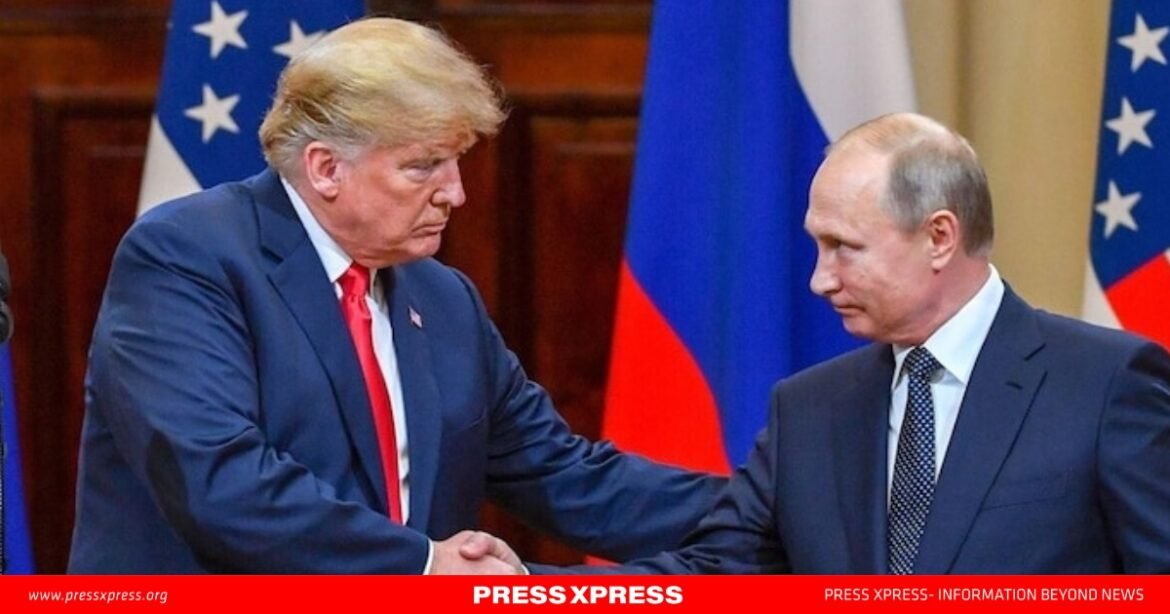President-elect Donald Trump has revealed that plans for a meeting with Russian President Vladimir Putin are underway, raising hopes and concerns about the possibility of renewed U.S.-Russia dialogue over the ongoing war in Ukraine. Speaking at a gathering of Republican governors at his Mar-a-Lago resort, Trump stated, “Putin wants to meet. We’re setting it up,” adding that the meeting would occur only after his January 20 inauguration.
Kremlin Response: Open to Dialogue, No Specifics Yet
Kremlin spokesperson Dmitry Peskov confirmed Russia’s willingness for discussions but emphasized that no formal arrangements had been made. “We see that Mr. Trump also declares his readiness to solve problems through dialogue. We welcome this,” Peskov said, according to Interfax. However, he noted that any progress would likely occur after Trump officially takes office, adding, “No conditions are required for contact between the two leaders.”
This statement comes amid a history of conflicting claims between the Trump team and the Kremlin. While Trump previously said he had spoken with Putin post-election about peace in Europe, the Kremlin denied such a conversation had taken place, calling the claim “pure fiction.”
Ukraine’s War and Trump’s Approach
The war in Ukraine, now approaching its third year, remains a pressing global issue. Trump has repeatedly expressed his desire to end the conflict quickly, raising speculation about the terms of any potential agreement. Critics fear that Trump’s urgency could lead to concessions favoring Moscow, particularly given Russia’s demands.
Putin has insisted on several controversial conditions for a ceasefire, including Ukraine’s withdrawal from occupied territories—Donetsk, Luhansk, Kherson, and Zaporizhzhia—and the abandonment of its NATO aspirations. Kyiv has firmly rejected these terms, viewing them as a violation of its sovereignty.
Trump’s rhetoric has sparked mixed reactions. At Mar-a-Lago, he told reporters, “We have to get that war over with. It’s a bloody mess,” highlighting his focus on resolving the conflict. However, his willingness to engage directly with Putin has drawn both support and criticism, reflecting lingering distrust of U.S.-Russia relations under his leadership.
Historical Context: Trump and Putin
If the meeting takes place, it would mark the first Trump-Putin summit since their controversial 2018 meeting in Helsinki, during Trump’s first term. At that time, Trump was widely criticized for appearing to side with Putin over U.S. intelligence agencies regarding allegations of Russian interference in the 2016 presidential election.
Despite personal rapport between the two leaders, Trump’s first term also saw an escalation in sanctions on Russia and the expulsion of diplomats, underscoring the complex nature of their relationship.
What Lies Ahead?
Trump has set an ambitious goal of ending the war in Ukraine within 100 days of taking office, with his Ukraine and Russia envoy, Keith Kellogg, reportedly delaying a visit to Kyiv until after Trump’s inauguration. Whether these efforts will lead to meaningful peace remains uncertain.
Key questions linger: How will Kyiv respond to any potential U.S.-Russia agreements? Will Zelensky be included in the negotiations? And how will Trump’s approach differ from that of his predecessors?
For now, Trump’s comments have heightened anticipation of a new chapter in U.S.-Russia relations. However, with conflicting statements from Washington and Moscow and deep divisions over Ukraine’s future, the path to peace remains fraught with challenges.


